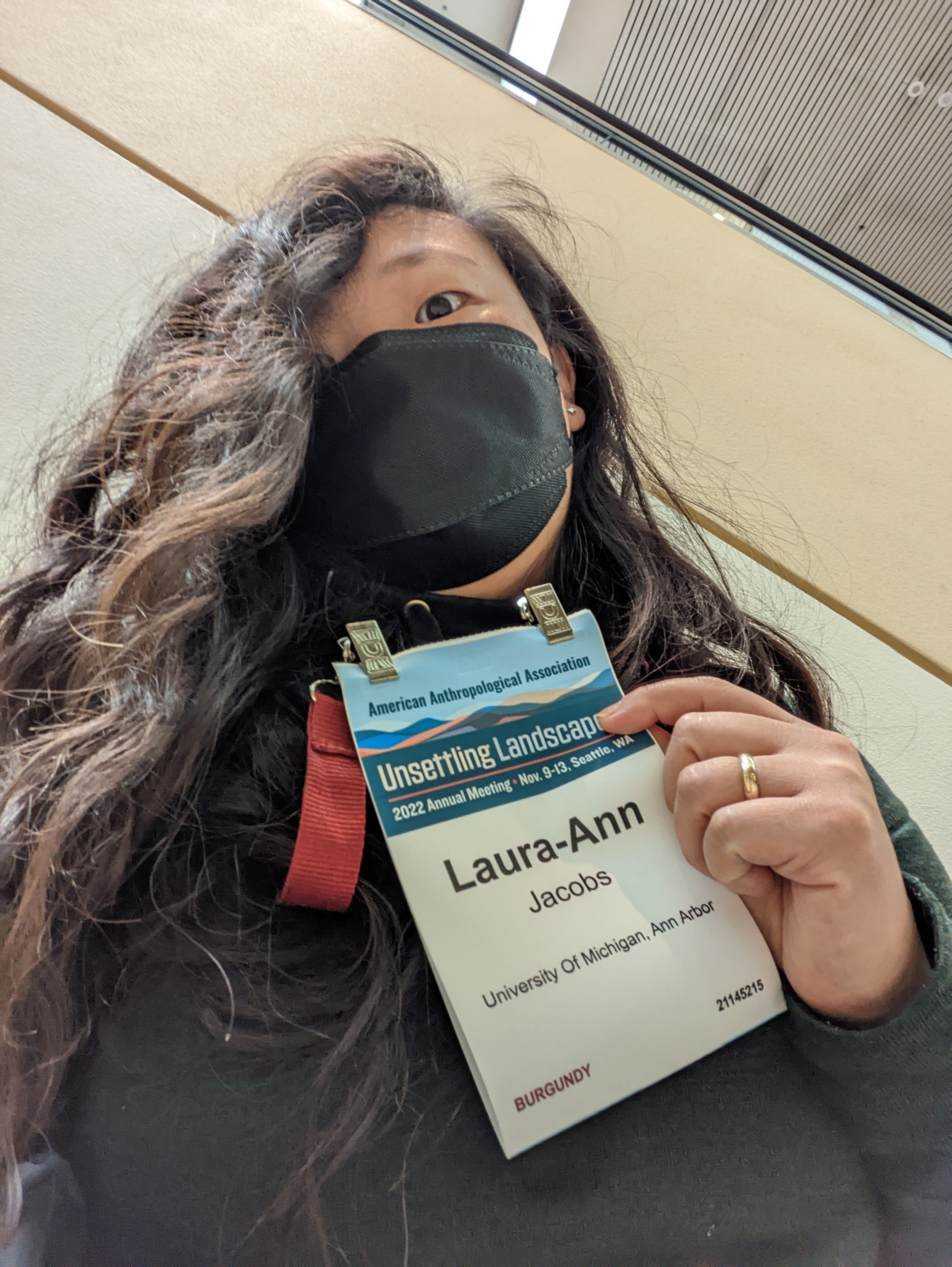This week I traveled to Seattle, WA to present at the American Anthropological Association Annual Meeting “Unsettling Landscapes.”
My talk was based on a portion of my dissertation and was titled “‘Telling Another Kind of Story’: Autoethnography as Counterstory in Unsettling White Supremacy in Teacher Education.”
ABSTRACT:
Many well-intending teachers perpetuate racism within their schools and classrooms. Teacher education programs have an urgent responsibility to shift teachers’ attentions from their intentions of equity toward the impact that racially uninformed practices have in their classrooms. This study focuses on how a teacher educator of color engages preservice teachers in antiracist learning. The goal of this study is to learn about the internal and external work of antiracist teacher education for the purposes of examining invisible labor of instructors of color, developing instructional strategies to support antiracist teaching and learning, and understanding preservice teachers’ realizations of antiracist pedagogy through their educational practice.
My methodological approach is autoethnography (Behar, 1996; Narayan, 1997; Purcell-Gates, 2011) as critical race counterstorytelling (Solórzano & Yosso , 2002). My investigation into this research question focuses on the challenges teacher educators of color experience in antiracist teaching and learning and how we experience these challenges. This autoethnographic counterstory seeks to humanize the experiences of teacher educators of color, reveal the latent white supremacist belief systems in teacher education programs, show possibility for changing teacher education programs, and invite collaboration for the construction of a new reality for teacher educators of color in teacher education.
What tensions arise for a teacher educator of color doing antiracist teacher education? In this study, preservice teachers positioned teacher educators and scholars of color as unprofessional non-experts. Preservice teachers demonstrated this positioning by delegitimizing and dehumanizing instructors and scholars of color. In contrast, preservice teachers demonstrated legitimizing and humanizing behaviors towards white scholars. Preservice teachers demonstrated delegitimizing and dehumanizing practices by disregarding the teacher educator of color’s pedagogical and disciplinary/content area authority, by refusing to engage with the teacher educator of color’s feedback, and by claiming an absence of guidelines, support, and expectations. Their positioning of people of color as delegitimized and dehumanized instructors and scholars enabled these preservice teachers to resist antiracist learning and perpetuate harmful behaviors aligned with white supremacy in the classroom.
How do teacher educators of color experience challenges to antiracist pedagogy? Teacher educators of color experience harm to their well-being in the forms of fatigue, exhaustion, mental pain, and physical pain as a consequence of enduring ongoing racism and resistance to antiracism from preservice teachers. Understanding how teacher educators of color experience preservice teachers’ resistances to antiracism in the form of delegitimizing and dehumanizing behaviors provides crucial perspectives for examining the invisible labor of teacher educators of color and considers possible supports for teacher educators of color as they engage with the difficult and complex work of challenging systems of oppression.
The findings from this study call for larger discourse around support for teacher educators of color as they engage in the difficult and complex work of challenging systems of oppression in the preparation of preservice teachers.




